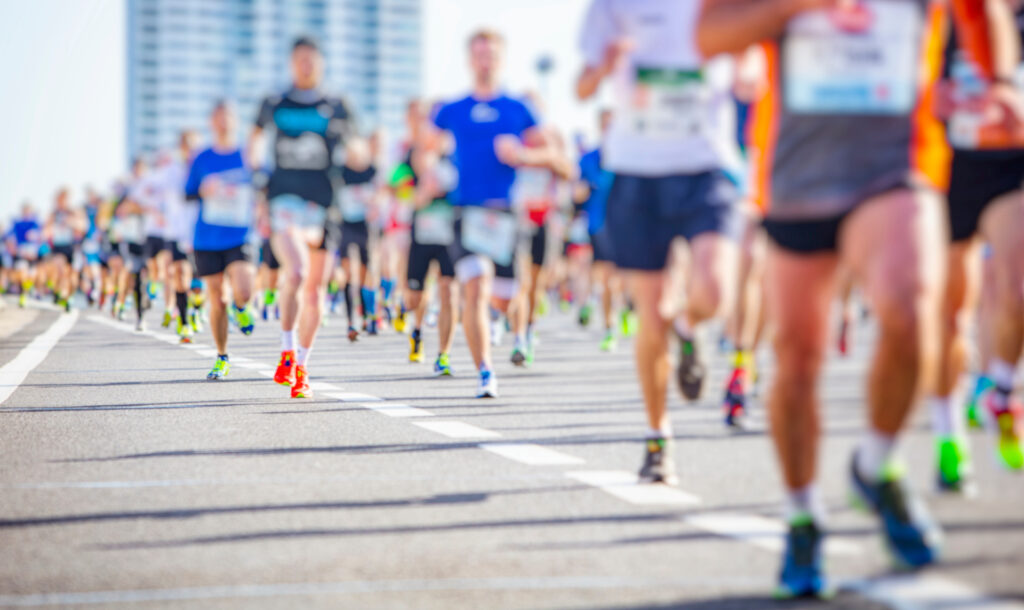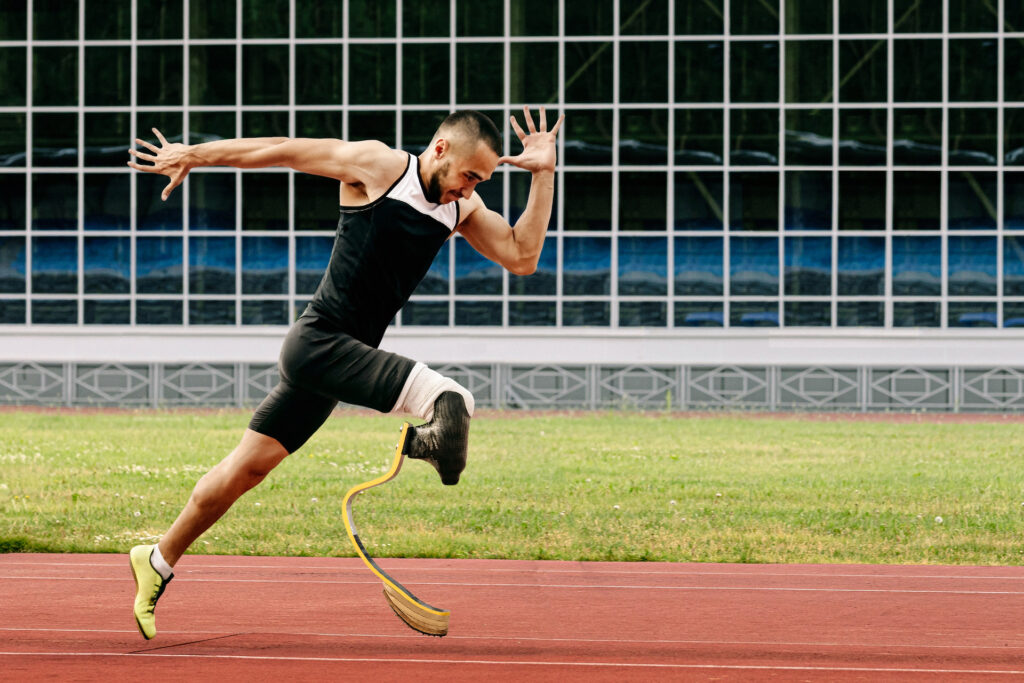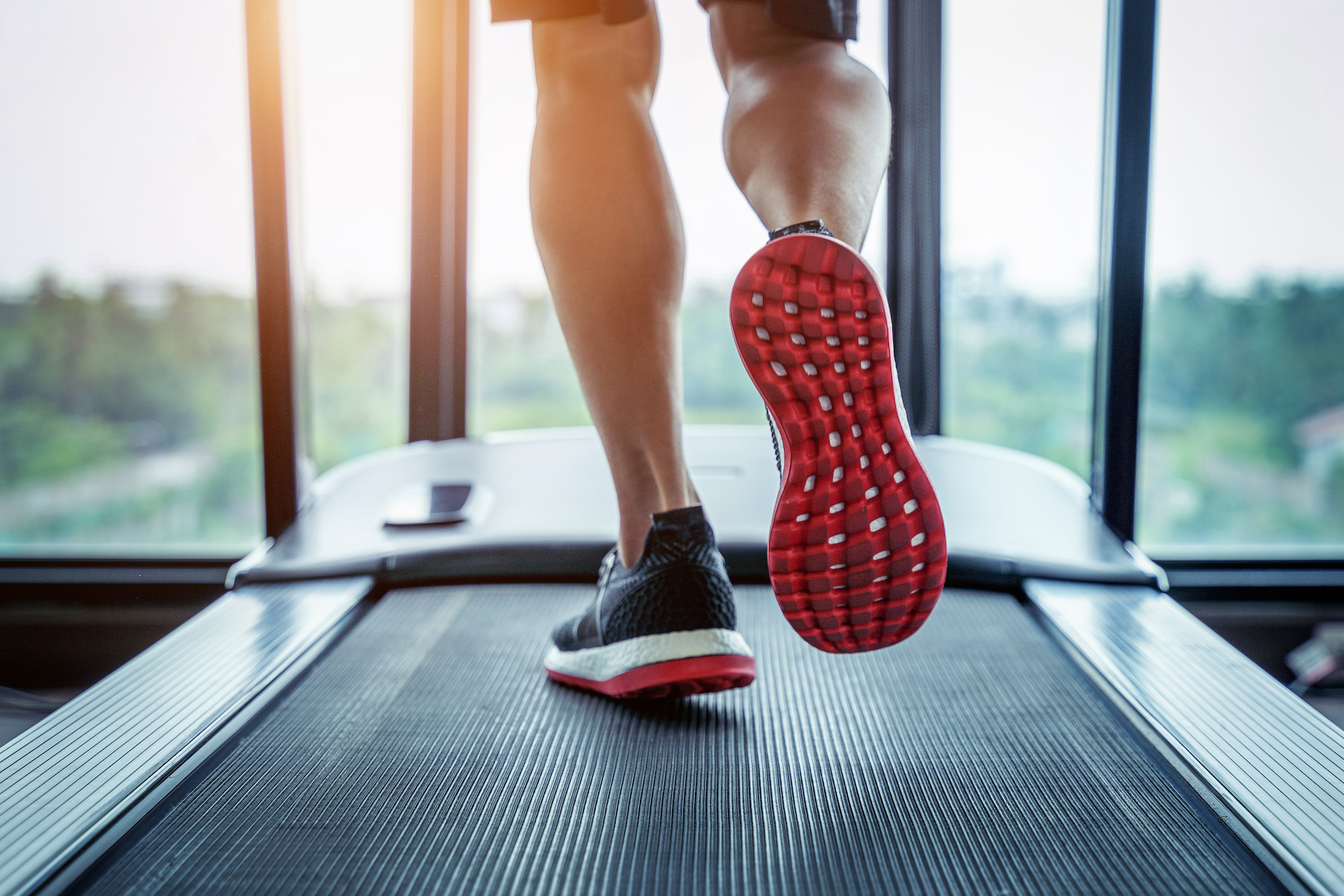Learn how cannabis, your body, and running workouts interact.
When it comes to athletics, cannabis can be a hot-button topic. Maybe it is the stereotypes about weed smokers being criminal or lazy. Maybe it’s conflation with the effects of substances like tobacco. But, for whatever reason, the impact of cannabis on athletic performance has been debated for decades.
Despite the opinions of anyone else, it is still important for athletes like runners to understand if cannabis is helping or hindering their performance.
After all, the goals of many runners are to run faster, farther, or more often, and they don’t want anything to get in the way of it.
Scientific research on weed and athletic capacity

A 2021 review on cannabis and athletic performance found that, for those who regularly consumed cannabis but stopped before and during their athletic performance,
“existing data comparing cannabis users to non-users, [shows] there are no reported differences in aerobic fitness, blood pressure, muscular strength, and endurance measures, work capacity, and perceived exertion.”
But even with these findings, the review still acknowledges that existing research has been interpreted in wildly different manners over the years.
“Perplexingly, despite there being few new data generated over the past few decades, repeated interpretations of the data have led to vastly different conclusions, with reviews presuming: no benefit, potential advantages, and predominantly an ergolytic effect.”
Ergolytic effects are the effects of a substance that lessen exercise capacity and athletic performance, and they are often the main focus of the debate about running and weed.
An expert’s point of view

Leafly spoke more about the potential negative and ergolytic effects of cannabis on runners with Dr. David Bearman, co-founder, Executive Vice President, and board member of the American Academy of Cannabinoid Medicine (AACM).
Bearman is an author of cannabis texts and has practiced medicine for over 20 years, specializing in pain management and cannabinoid medicine. This year, he released a book called Cannabis Medicine: A Guide to the Practice of Cannabinoid Medicine.
Bearman understands the many reasons why a runner may choose to enjoy weed. It is useful in both pain treatment and as a muscle relaxant, which can be beneficial when running or in recovery.
“If we look at someone like Sha’Carri Richardson, who won the 100-meter dash in the Olympic trials but was omitted from the team because she used cannabis, obviously the cannabis didn’t hurt her performance,” he says. “Maybe she would’ve run even faster without the cannabis, but she certainly was the fastest woman in the 100-meter dash, and it’s clear that she used cannabis.”
He thinks that many people tend to focus on irrelevant factors about cannabis and athletic performance and that dedicated (and especially professional) athletes who consume cannabis would likely notice if they were dizzy or sleepy.
Shop highly rated dispensaries near you
Showing you dispensaries near
See all dispensaries
“If you’re a runner, you’re not gonna take cannabis if it makes you dizzy or sleepy. People who are running often have developed tolerance.”
Dr. Bearman has also heard concerns about cannabis’ potential to increase runners’ pulse and blood pressure, but he says the increase is transient and that he’s seen many heart patients use medical cannabis safely, with none reporting issues with their heart in relation to their cannabis use.
“The people who say that [cannabis] has a negative effect on performance are really what I would call neo-prohibitionists,” he says.
Cannabis’ impact on runners’ minds

On top of the impact on an athlete’s capacity and lungs, cannabis also has a psychological impact on runners. It can help decrease anxiety, which can aid runners in finding the activity more enjoyable.
Dr. Bearman says, “There are runners who have said to me, ‘I feel better; the colors look better. I feel more relaxed; I feel more into it.’ So you have two different issues. One is the enjoyment of running, and one is the performance.”
This positive psychological impact keeps many runners inspired and motivated to keep running or improve their performance—a combination of a positive mental impact that influences the physical.
Cannabis’ impact on runners’ lungs

Dr. Bearman also points out that cannabis acts as a bronchodilator and anti-inflammatory.
“That means it opens up your bronchi, your tubes that go into your pulmonary function and your lungs, and you can take in more air, and that’s gonna help you do more work.”
But Bearman’s perspective on this is in direct opposition to the stance of the American Lung Association, which states that cannabis smoke, like all other smoke, is harmful to the lungs. The ALA also suggests that the long inhaling habits demonstrated by many weed smokers could increase the risk of harm to the lungs.
Identifying the proper intake method

So, should serious runners avoid smoking or just stick to other methods of consumption, such as edibles or tinctures?
“There are three side effects to smoking that don’t exist with other routes of administration,’ explains Dr. Bearman.
He recites his learnings from Dr. Donald Tashkin, a pulmonologist, and professor of medicine at UCLA, who has studied the effects of cannabis for over 30 years.
“Smoking cannabis contributes to increased cough, increased sputum production, and increased bronchial irritation. Now, those are likely to interfere with running, but then again, people who have used it for a long time don’t cough. They may have increased sputum production, but on the other hand, that can be counteracted by the fact that cannabis is an anti-inflammatory.”
Because of this, if a patient were to ask Dr. Bearman if they should avoid smoking cannabis and stick to other methods of consumption to achieve their best athletic performance, Dr. Bearman said he would hesitate to give a definitive answer.
“Because the evidence is so limited, it’s hard to make a hard and fast rule, but common sense says that because there is some increased sputum production from smoking cannabis, you may be better off with edibles or tinctures because they’re gonna have the same [positive] effects [without the smoke.] Remember, the runner produces increased endocannabinoids when they run, so the body must think that cannabinoids are useful in terms of running.”
At the end of the day, Dr. Bearman recommends that runners who smoke cannabis simply go ahead and try it and see if it works for them.
The key is paying attention to your body and modifying the format in which you consume if the smoke, itself, keeps you from your performance goals.
Read the full article here









